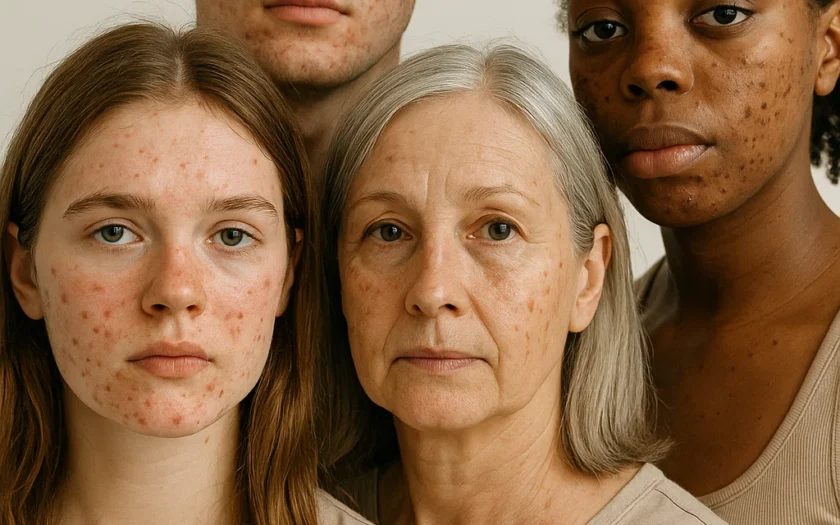Acne is often seen as a teenage problem, but many people are surprised — and frustrated — to find themselves dealing with breakouts well into adulthood. Whether you’re in your 20s, 30s, 40s, or beyond, adult acne is real, common, and often misunderstood.
Let’s explore why acne doesn’t always go away after adolescence — and what you can do about it.
Why Am I Still Getting Pimples as an Adult?
Here are some of the most common reasons people continue to experience acne after their teenage years:
1. Hormonal Changes
Hormones play a huge role in oil production. Fluctuations related to menstrual cycles, pregnancy, menopause, or even conditions like PCOS (polycystic ovary syndrome) can trigger breakouts at any age.
2. Stress
Chronic stress increases cortisol levels, which may lead to increased oil production and inflammation. This can cause or worsen acne — especially along the jawline and chin.
3. Skincare and Makeup
Using products that clog pores (comedogenic) or contain irritating ingredients can make breakouts worse. Adult skin is also more sensitive, making gentle care essential.
4. Diet and Gut Health
Research suggests that high-glycemic foods, dairy, and imbalanced gut bacteria may contribute to acne. Everyone reacts differently, but monitoring your diet can be helpful.
5. Environmental Factors
Pollution, climate, and lifestyle habits (like not removing makeup before bed) can all impact your skin’s health.
6. Medications
Certain medications — like corticosteroids, lithium, or some antidepressants — may cause acne as a side effect.
What Adult Acne Looks Like
Unlike teenage acne, which tends to be spread across the T-zone, adult acne often appears on the lower face, jawline, and neck, and can include:
-
Deep, painful cysts
-
Persistent blackheads or whiteheads
-
Occasional flare-ups during stress or hormonal shifts
How to Manage Breakouts at Any Age
-
Use gentle, non-comedogenic skincare
-
Stick to a consistent routine — cleanse, treat, moisturize, and protect
-
Avoid over-washing or over-exfoliating, which can irritate the skin
-
Monitor diet and hydration
-
Consider stress management techniques (like mindfulness or light exercise)
-
Consult a dermatologist for personalized treatment, especially for persistent or severe cases
It’s Not Just You — And It’s Not Your Fault
Adult acne can affect anyone — regardless of gender, background, or lifestyle. It’s more common than you think, and it doesn’t mean you’re doing something wrong. Skin is complex, and every body is different.
What matters most is learning how to work with your skin, not against it.

